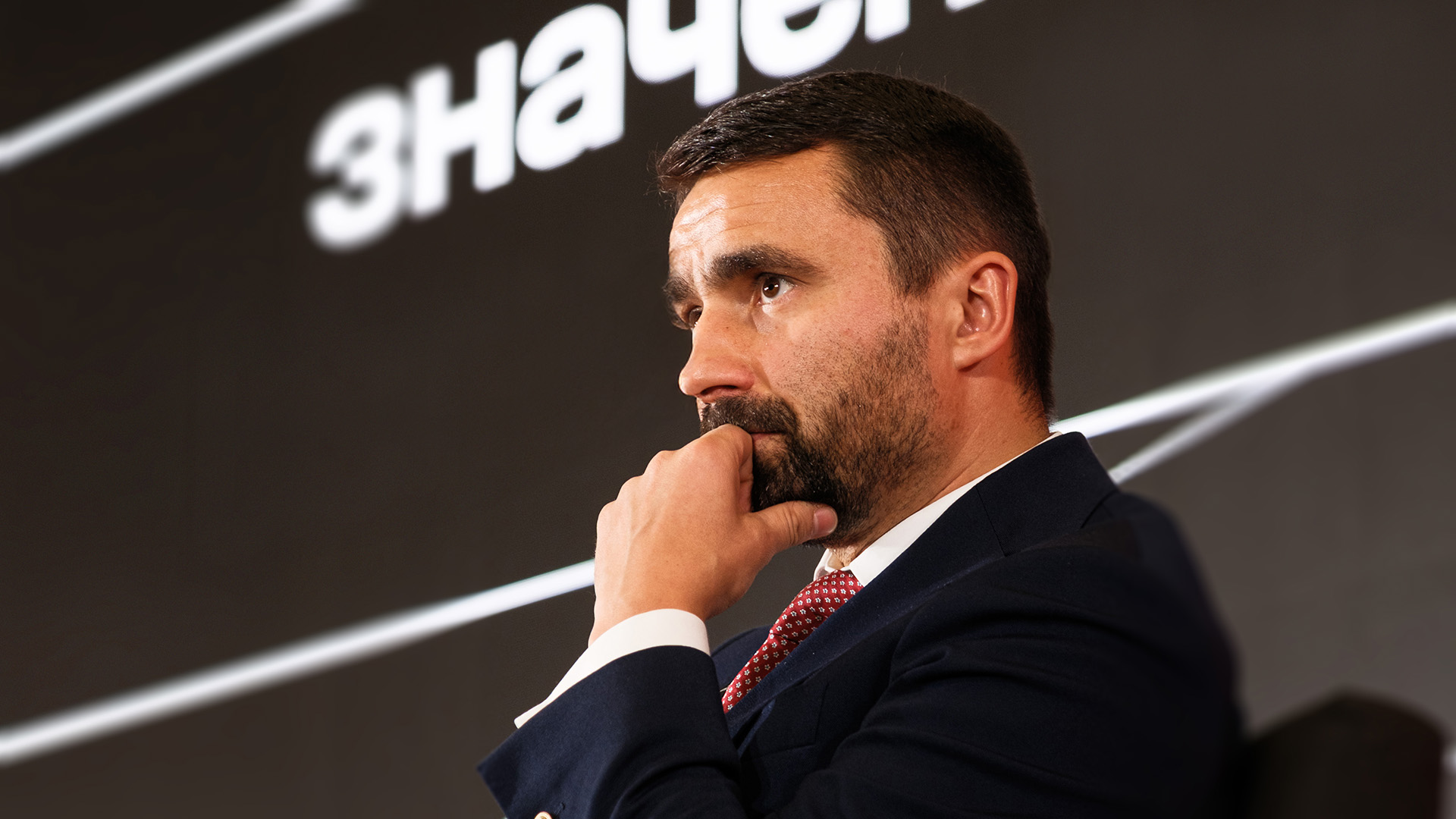The main financial event of the year brought together more than 30 speakers, including leading economists, investors and representatives from government and business. The forum addressed macroeconomic forecasts for Ukraine for 2025-2026, the impact of global events, including the change of leadership in the US, the adaptation of Ukrainian business to new conditions, geoeconomic shifts in global markets and their implications for Ukraine, as well as the investment climate and prospects for attracting capital.
Vodoviz participated in the “Climate Matters: Dialogue Between Business and Government” panel. The discussion also featured Danylo Hetmantsev, Chairman of the Verkhovna Rada Committee on Finance, Tax and Customs Policy; Roman Vashchuk, Business Ombudsman; Mykhailo Polyakov, Deputy General Director for Corporate Affairs at Philip Morris Ukraine, Co-Chairman of the Tax Committee at the American Chamber of Commerce in Ukraine; and Yuriy Katsion, Deputy Chairman of the Board in charge of corporate business at Oschadbank.
The head of the Chief Executive Officer’s Office of Metinvest said that the main reason for the decline in investment in Ukraine is the full-scale war. In 2024, the country received US$3.3 billion in foreign direct investment, of which US$2.8 billion was reinvestment and only US$500-600 million was “net” investment. For comparison, this figure stood at US$7.8 billion in 2021.
He added: “Before the war, large companies took out loans worth hundreds of millions or even billions of dollars. Now we are talking about finding financing at the level of EUR5-10 million. The volume of capital raised has decreased tenfold. The Ukrainian economy is facing a critical investment deficit, without which its stability is threatened. And without a stable economy, the country will not be able to win wars. This is a matter of the state’s existence.”
Vodoviz believes that even under such conditions, it is possible to find instruments for attracting funds. For example, the state could offer foreign investors who are not coming to Ukraine due to wartime risks investment insurance, budgetary guarantees or initiate negotiations between investors and partners.
The Ukraine Facility is another important instrument, providing EUR50 billion in support, of which EUR8 billion is allocated for guarantees to attract investment in business. He said: “However, Ukrainian businesses are currently capable of absorbing around EUR50 million. And not a single Ukrainian company has been invited to participate in these programmes. We submit projects, travel to Brussels, explain why this is important for the economy. Yet the state still does not use this tool, despite ongoing negotiations with the Ministry of Economy, agencies and embassies. The reason for this remains unclear.”

The head of the Chief Executive Officer’s Office of Metinvest noted that one of the main factors holding back investment in Ukraine is the National Bank’s restrictions on dividend payments and foreign currency transactions.
He explained: “We face this issue during negotiations with international lenders. For example, we are planning to build a 50 MW solar power plant at our enterprises and have found an institution willing to provide financing. However, when discussing the financial model, the question arises: ‘Your limit is EUR1 million per month. How are you going to return EUR50 million in investments?’ Under such conditions, repayment becomes unfeasible.”
Vodoviz stated that the National Bank is maintaining this restriction despite foreign currency reserves of US$46-48 billion. He believes that while a EUR1 million monthly limit may be sufficient for small and medium-sized businesses, it is far too restrictive for a large business with loan portfolio of US$2.5 billion.
During the discussion, Danylo Hetmantsev, Chairman of the Verkhovna Rada Committee on Finance, Tax and Customs Policy, confirmed the validity of this business position.
He said: “Currency restrictions cannot be lifted at the moment as our balance of payments is negative. But I agree that the National Bank can set certain currency restrictions with a margin. And, perhaps, by increasing the risk, bring the restrictions closer to the needs of business. We are also calling on it to do so, without putting pressure on the regulator, of course.”
Vodoviz also emphasised that in difficult economic conditions, the state must pursue a balanced fiscal policy to support business and attract investment.
The head of the Chief Executive Officer’s Office of Metinvest concluded: “What would I advise the state? Today, we are witnessing a contraction of large businesses: plants and enterprises are shutting down, and everyone feels it. Yes, it is important to fill the budget, but it is just as important not to go too far, so that all those who are supposed to pay taxes at the end of the year make it that far.”
